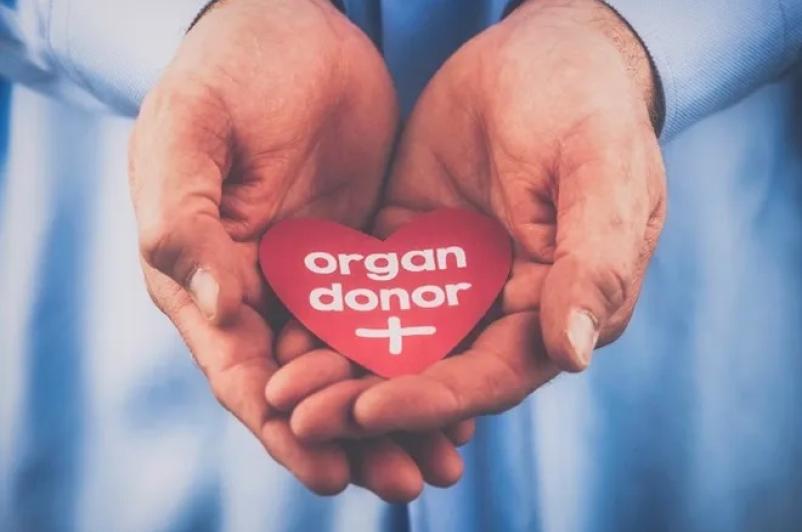
Valentine’s Day is not just about giving your loved one flowers and chocolates. It also marks National Donor Day, a day to raise awareness about the critical need for organ, eye and tissue donation. Valentine’s Day, and every day for that matter, is the perfect day to share the love by committing to saving and healing lives through donation.
According to the Health Resource and Services Administration, there are over 103,000 men, women and children on the national transplant waiting list, and it continues to grow. In New York State, the life-saving organ transplant waiting list has over 10,000 people’s names on it, and a name is added to the list every two and a half hours. New York ranks last of all 50 states for the number of registered donors. The solution to this problem is to educate the public on the lifesaving effects of donation and encourage people to sign up on the Donate Life registry.
One registered donor can save up to eight lives through solid organ (heart, lungs, liver, spleen, kidneys, adrenal glands and pancreas) donation and improve the lives of up to 75 people through tissue donation. People with burns, fractures and other medical conditions can benefit from donated tissue like skin, bone and corneas. In 2023, UHS had 15 donors who gave recipients a second chance at life.
Organ donation is not just about the recipients. It’s also about helping families who are grieving the loss of a loved one and supporting those families. At UHS, we are committed to making families feel supported in knowing their loved one’s heroic last act will leave a lifesaving legacy.
“Gratitude and respect are two huge things for us, and that is one of the reasons why we started to have Walks of Honor,” said Toni Nash, MSN, RN, clinical coordinator of Organ and Tissue Donation at UHS Hospitals. We hold Honor Walks as a dignified way to honor each patient’s contribution, and we hope to make the option of donation a positive experience for the families during a time of loss. The Honor Walk takes place as the patient and their loved ones travel the hallway from the critical care unit to the operating room, as UHS staff line up on each side to pay silent tribute. The Honor Walk lets families know, “We think the people who donate to save a life are heroes.”
Mary Williams, RN, a UHS nurse and a recipient of a heart donor, is extremely grateful to have received a second chance at life. “My donor is a hero to me and anyone else who may have received an organ from him. His selfless act of organ donation saved my life. I wish I could have been there to thank him, to hold and comfort his family as they navigated the journey to donation,” Mary said. As she was awaiting her operation, she asked for a flameless candle to light for him. Mary could not be at his Walk of Honor, but she tries to make it to every Honor Walk held at UHS. By attending other walks, Mary feels like she can offer support and encouragement to other families while still honoring her donor as well. She thinks it is a wonderful way to pay tribute to the donors and the families. Mary said, “It’s a painful time for the family. I think showing love and appreciation to the donor and family can help ease the pain of loss. I think it also helps with processing grief, because even though the donor is gone, a part of them saved a life and continues to live on.”
The transplantation process can be a difficult journey pre and post operation. Mary encourages people on the waiting list to trust your transplant team and try not to get discouraged. Mental health services can go a long way, and having someone to provide emotional support is important. Another resource that may help is a mentoring program specifically dedicated to individuals going through the transplantation process. Sometimes, the mentors can be a volunteer who has received a transplant relevant to your case, cared for a family member or friend, a living donor or the member of a donor family. Mary’s team connected her with a patient that was 10 months post-transplant while she waited in the hospital for her transplant. “My mentor has been an incredible source of encouragement, and I’m lucky to call her my friend,” Mary said. Transplant teams may have a mentor program in place at their hospital, or you can search online for one at Giftdonor.org.
Organ, eye, and tissue donation is a selfless act that often results in giving the gift of a second chance at life and registering to be a donor makes you a hero for someone in the future. In partnership with the Center for Donation and Transplant at Albany Medical Center and ConnectLife, a blood and organ donor network, UHS encourages everyone to register as a donor. It is important to make your wishes known to family members, caregivers and medical providers so they can act accordingly in the event of death, even if you are registered. This Valentine’s Day, register to be a donor and make the generous decision to save someone’s life.
To register to be a donor or for more information, visit donatelifenys.org.


